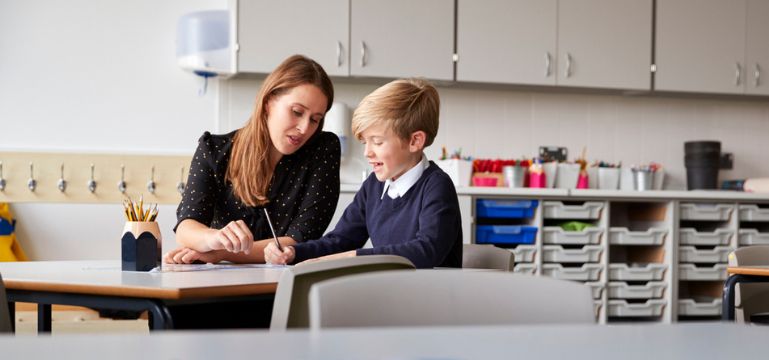Raising the attendance of vulnerable pupils through highly effective individual well-being support

Quick links:
Information about the school
Plasmarl Primary School is situated approximately two miles east of Swansea City Centre. There are 230 pupils on roll, including 47 nursery pupils. 25% of pupils speak English as an additional language (EAL). Around 42% of pupils qualify for free school meals and 25% have additional learning needs (ALN).
Context and background to the effective or innovative practice
The COVID-19 pandemic had a significant impact on attendance and pupils’ well-being. Lockdown periods adversely affected engagement with the community and halted the usual pattern of events. It was important to re-establish strong connections to inform school improvement.
The school’s priority was to strengthen its well-being and inclusion provision to reduce barriers to learning. The school created two enhanced alternative provisions to respond to the growing needs of pupils and to give them the access to the education they need.
The school recognised that a different approach was needed to support the progress of vulnerable pupils and that a research-based trauma informed approach would allow staff to better understand how trauma may be a barrier to learning.
Description of nature of strategy or activity
Well-being Team
A dedicated well-being team was created, which included a member of our senior leadership team, and a new attendance officer. Daily check-ins with pupils who were reluctant or who needed additional support to attend school were implemented by the team.
Trauma informed practice
Following an evaluation of provision, staff undertook professional learning focused on using trauma informed approaches and strategies intended to regulate and calm pupils. Staff awareness was raised around the importance of being emotionally available to pupils whenever required. The school trained two staff as trauma informed practitioners and Plasmarl Primary was awarded ‘Trauma and Mentally Healthy School’ status in 2022.
Enhanced alternative provision
The school’s Rainbow Room was created to provide a space for the most vulnerable pupils to access well-being support and intervention. The school identifies pupils most in need of help through family requests and using a range of well-being assessment tools. The ‘dark’ sensory room provides a safe and calming space for pupils to self-regulate.
The trauma informed practice used in the ‘Rainbow Room’ has three strands:
- Nurture
- 1:1 bespoke intervention
- Working with parents
An intervention group was established for pupils requiring additional provision as stated in their IDPs. The ‘Gwdihw’ group, for example, has a high staff to pupil ratio, enabling pupils to access the support they require and to work on their individual targets in a quieter and more structured environment.
Staff use sensory circuits daily. These are a series of activities that support the sensory needs of pupils and enable an inclusive learning environment.
A soft play area has been developed for pupils with Developmental Coordination Disorder (DCD). Use of this area encourages pupils’ development of fine and gross motor skills.
Family engagement
The school’s work with parents includes weekly themed coffee mornings where parents can meet and share experiences. Staff provide support focusing on topics such as attendance, budgeting and toileting. Parents benefit from a range of support networks such as monthly meetings for parents of children with ALN. As a result, parents are suitably informed about school procedures and how they can support their child at home.
What impact has this work had on provision and learners’ progress?
- The trauma informed approaches have enabled staff to embed strategies holistically to support all pupils to feel safe at school.
- The school is a calm environment where pupils are ready to learn and able to achieve their potential.
- The enhanced alternative provision enables the most vulnerable pupils to access the curriculum.
- The school’s nurture group supports the social and emotional needs of pupils and provides the help that is needed to remove barriers to learning. As a result, pupils develop confidence, resilience and a positive attitude to learning.
- The high levels of care and support for vulnerable pupils and their families have impacted significantly on pupil attendance and parental engagement.
- Attendance has risen from 87.9% in July 2022 to 94.9% in December 2023.
How have you shared your good practice?
- The school has shared its effective practice with other schools in the local cluster and across the local authority, including presentations to ALNCos (additional learning needs coordinators) and headteachers.
- The school has welcomed staff from local schools and the local authority to observe practice.